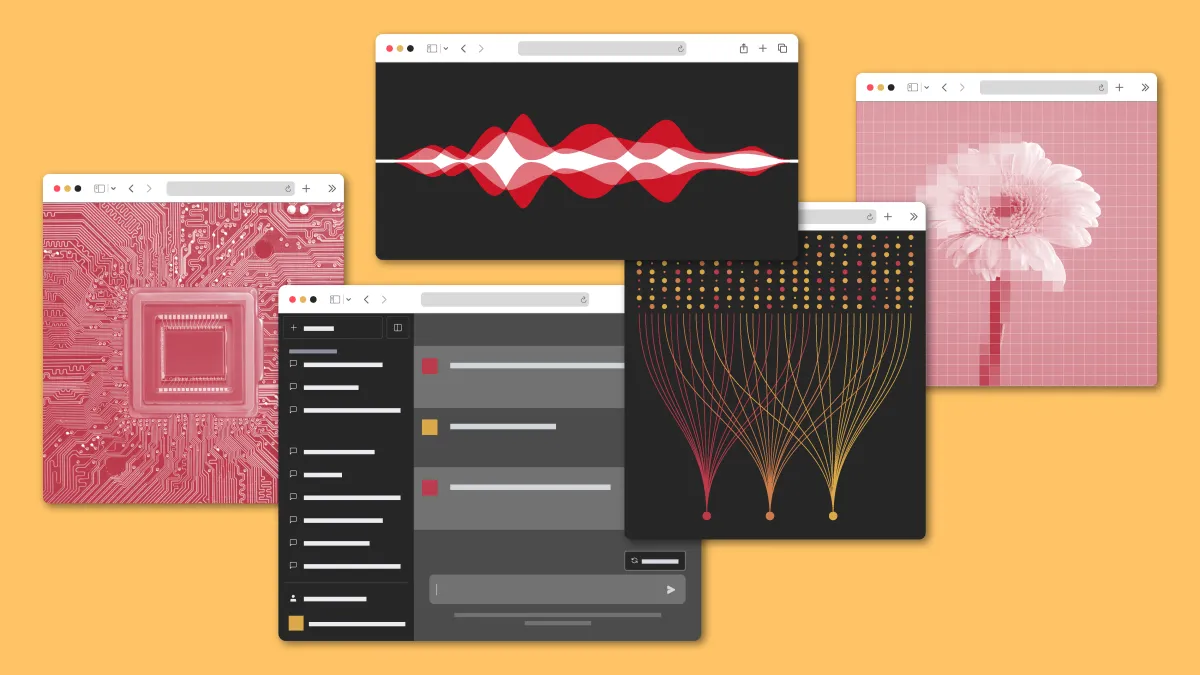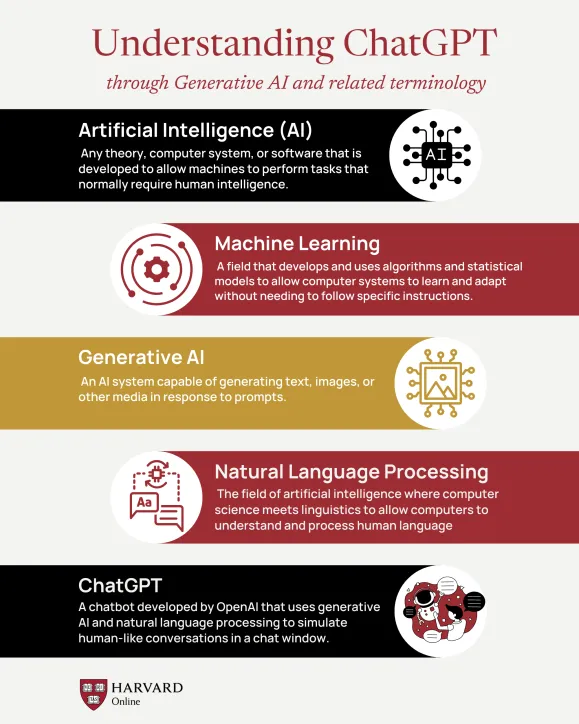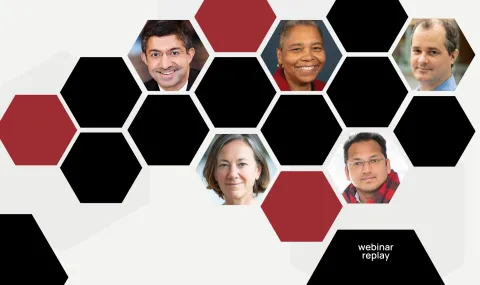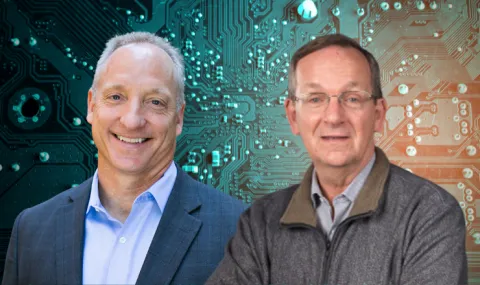The Benefits and Limitations of Generative AI: Harvard Experts Answer Your Questions
Published April 19, 2023
Series Mentioned in this Post: Harvard On Digital
“When we think about the future of the internet, I would guess that 90% of content will no longer be generated by humans. It will be generated by bots,” says Latanya Sweeney, Professor of the Practice of Government and Technology at the Harvard Kennedy School and in the Harvard Faculty of Arts and Sciences.
Recent developments in artificial intelligence technologies are forcing us to reimagine how we engage with the world around us. Experts in digital technologies and data privacy have been keeping up with the latest AI developments and AI limitations, and many, like Latanya Sweeney, have noticed that the introduction of ChatGPT may signal a major shift in how we engage with the internet, each other, and the world.

Sweeney continues to say, “What makes generative AI different, is that it seems to create something that didn’t exist before. As humans, we think of ourselves as the only ones creating. While [generative AI] is not creating in the way humans are, it is making the latest development in this technology feel really different.”
Dustin Tingley, Deputy Vice Provost for Advances in Learning, agrees, “the breadth of things that ChatGPT is able to do is stunning.”
Understanding Artificial Intelligence (AI) Terminology
Terms like generative AI, machine learning, ChatGPT, and natural language processing are often used interchangeably, but in order to understand the impacts of these technologies, we first have to define the terminology.

Artificial Intelligence (AI) is an umbrella term for any theory, computer system, or software that is developed to allow machines to perform tasks that normally require human intelligence. The virtual assistant software on your smartphone is an example of artificial intelligence.
Machine Learning is a field that develops and uses algorithms and statistical models to allow computer systems to learn and adapt without needing to follow specific instructions. Asking the GPS on your phone to calculate the estimated time of arrival to your next destination is an example of machine learning playing out in your everyday life.
Generative AI is a type of AI system capable of generating text, images, or other media in response to prompts.
Natural Language Processing is the field of artificial intelligence where computer science meets linguistics to allow computers to understand and process human language.
ChatGPT is a chatbot developed by OpenAI that uses generative AI and natural language processing to simulate human-like conversations in a chat window where the user can ask the bot to help with a variety of tasks, including drafting emails, essays, code, and more.
How have generative AI and natural language processing technologies evolved over time?
Dustin Tingley spent his early career using natural language processing models in his research. In this clip he explains what natural language processing is and the evolution of the technology:
What can Generative AI do today?
We are just learning all of the ways technologies like ChatGPT can impact how we learn, work, and interact with each other in society. Through this work, we are also better understanding the limits of artificial intelligence as it stands today. Harvard leaders like Bharat Anand, Vice Provost for Advances in Learning at Harvard University, have enjoyed experimenting with the technology. In the clip below, Anand shares one of his experiences and surprising findings:
How will ChatGPT impact education, work, and society?
ChatGPT and Education
Perhaps the most widely discussed concern about ChatGPT has centered around education and the potential for students to use the technology to cheat on exams and essay assignments.
Rebecca Nesson, Dean for Academic Programs at the School of Engineering and Applied Sciences, states, “The ability to creatively use these tools is the fundamental challenge for all of us. If we don’t transform education in a way that helps our students, then we’re not succeeding as educators.”
She goes on to share what particularly excites her about the opportunity to integrate generative AI into classroom instruction and pedagogy:
ChatGPT and Industry
What are the broader applications of this technology in industry? Imagine being able to ask a chatbot for legal advice. While the advice may not be entirely trustworthy today, this type of service provides some insight on the implications of ChatGPT across industries and workforces.
Vijay Janapa Reddi, Associate Professor in the John A. Paulson School of Engineering and Applied Sciences (SEAS), has worked on AI integration in industry and business for many years. He observes that “In reality, many companies are identifying other uses for this type of technology that go beyond chatbots. ChatGPT is the tip of the iceberg and the research is showing that it’s not the only kind of service that people care about.”
ChatGPT and Society
How will ChatGPT impact how we engage with the world around us and each other? Even before ChatGPT, machine learning has been helping us make decisions for better and for worse. Latanya Sweeney explains:
In a world where computers are enabled with the ability to make decisions big and small, Sweeney is most concerned with maintaining control over our lives and society even as these technologies change the way we live, work, and play.
Ethical Use and Development of AI Technologies
What are the steps that can be taken to enable safer AI-enabled products? One key is to change the way the cycle of development works. Sweeney notes, “A lot of times technology and society clashes can be avoided in the design phase (of these products), but it’s much harder to fix the issues once the products come to market.”
Another way to encourage safe AI usage is to change the narrative and recognize the limits of artificial intelligence. Reddi is working with companies like Google and within higher education to promote the idea that “Safe AI is better AI for everyone.”
The Future of AI Technology
Can we accurately predict our future alongside generative AI technologies considering the rapid development of these technologies? How can we address AI limitations and improve upon these areas? Latanya Sweeney offers some final thoughts:
All quotes and video clips in this post were excerpted from The Future of Generative AI: Transforming Education, Work, and Society, a webinar coordinated through the Office of the Vice Provost for Advances in Learning (VPAL) featuring panelists from across Harvard University.
Related ArticlesThe Future of Generative AI: Expert Insights and Predictions Image

Jim and Mike on the Potential and Limitations of ChatGPT Image

|